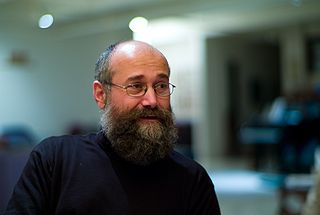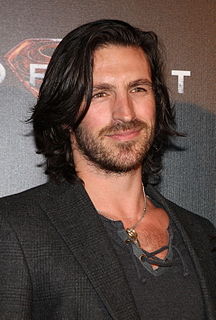A Quote by Yochai Benkler
Technology has enabled government to have investigative and situational awareness on a scale and scope that were science fiction when the Stasi shut its doors.
Related Quotes
Science fiction is fantasy about issues of science. Science fiction is a subset of fantasy. Fantasy predated it by several millennia. The '30s to the '50s were the golden age of science fiction - this was because, to a large degree, it was at this point that technology and science had exposed its potential without revealing the limitations.
For me, two of my favourite science fiction films are Blade Runner, which is fantastic, and Terry Gilliam's Twelve Monkeys. Both of those were smart science fiction films hitting more of a medium budget, and I desperately hope there is an audience for that kind of film because I would love that to be my next film, on that kind of scale.
Communication media enabled collective action on new scales, at new rates, among new groups of people, multiplied the power available to civilizations and enabled new forms of social interaction. The alphabet enabled empire and monotheism, the printing press enabled science and revolution, the telephone enabled bureaucracy and globalization, the internet enabled virtual communities and electronic markets, the mobile telephone enabled smart mobs and tribes of info-nomads.
A snappy label and a manifesto would have been two of the very last things on my own career want list. That label enabled mainstream science fiction to safely assimilate our dissident influence, such as it was. Cyberpunk could then be embraced and given prizes and patted on the head, and genre science fiction could continue unchanged.
Very little in science fiction can transcend the gimmickry of a technical conceit, yet without that conceit at its heart a book is not truly science fiction. Furthermore, so little emerging thought and technology is employed by sf writers today that the genre is lagging far behind reality both in the cosmology area and the technology area: sf is no longer a place to experiment, but is now very derivative.
Science fiction is a weird category, because it's the only area of fiction I can think of where the story is not of primary importance. Science fiction tends to be more about the science, or the invention of the fantasy world, or the political allegory. When I left science fiction, I said "They're more interested in planets, and I'm interested in people."
[Science fiction is] that class of prose narrative treating of a situation that could not arise in the world we know, but which is hypothesised on the basis of some innovation in science or technology, or pseudo-science or pseudo-technology, whether human or extra-terrestrial in origin. It is distinguished from pure fantasy by its need to achieve verisimilitude and win the 'willing suspension of disbelief' through scientific plausibility.




































